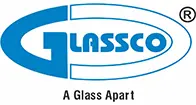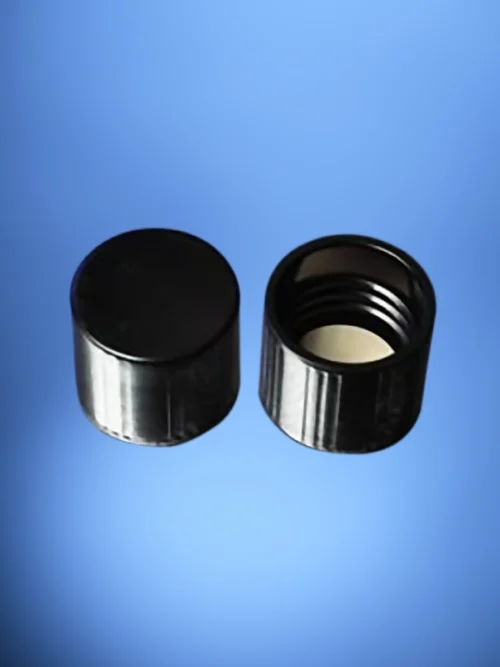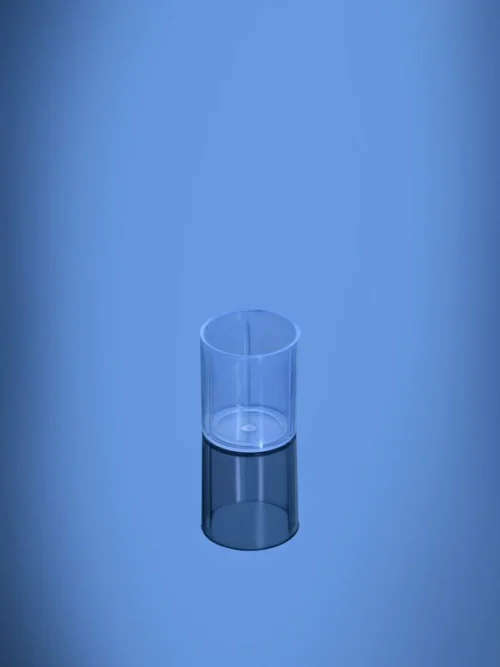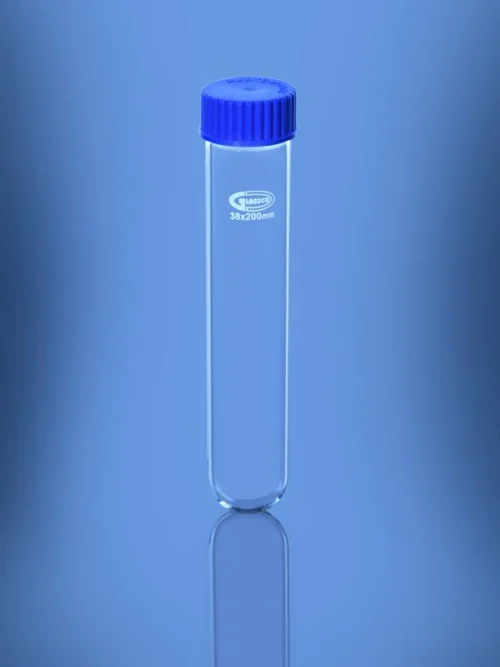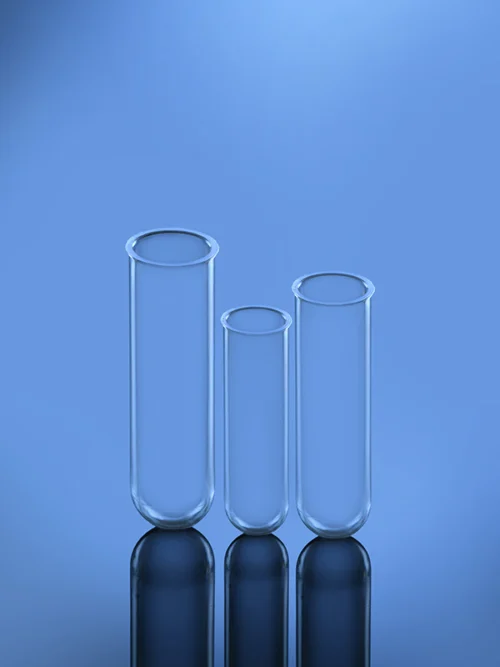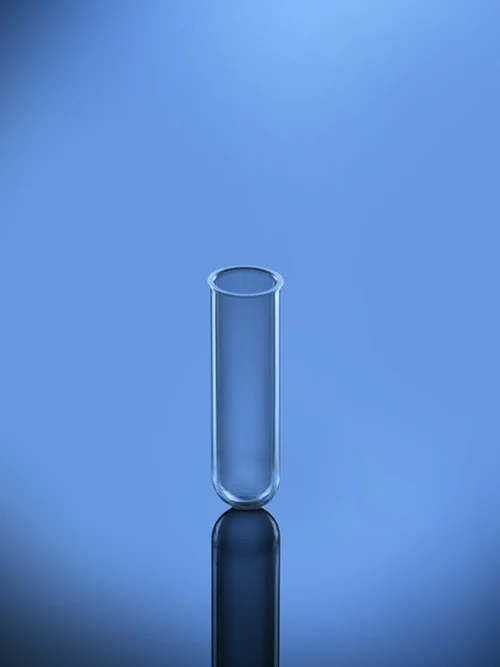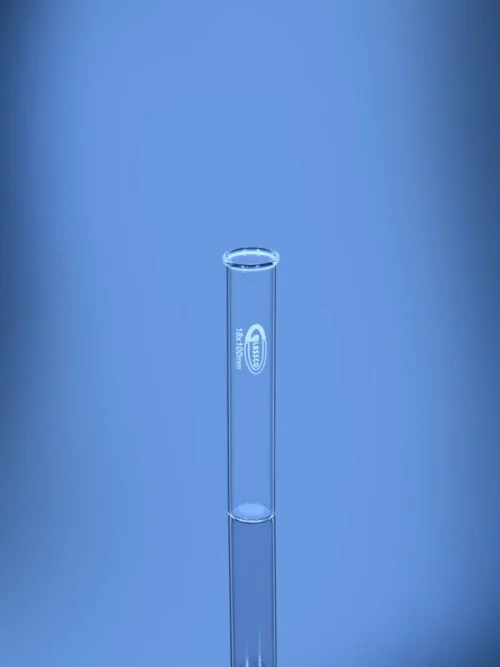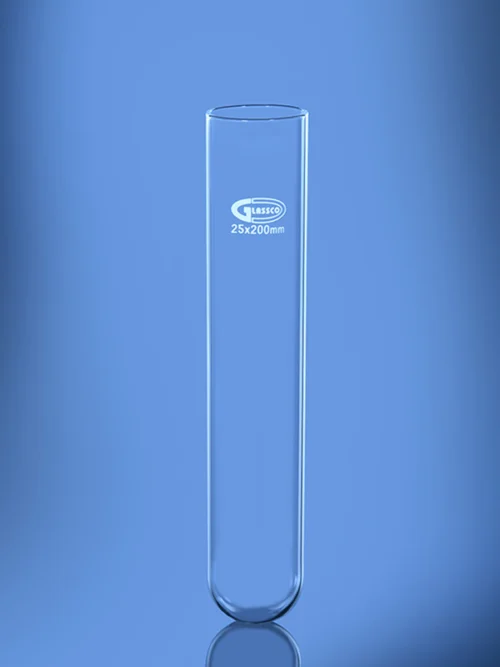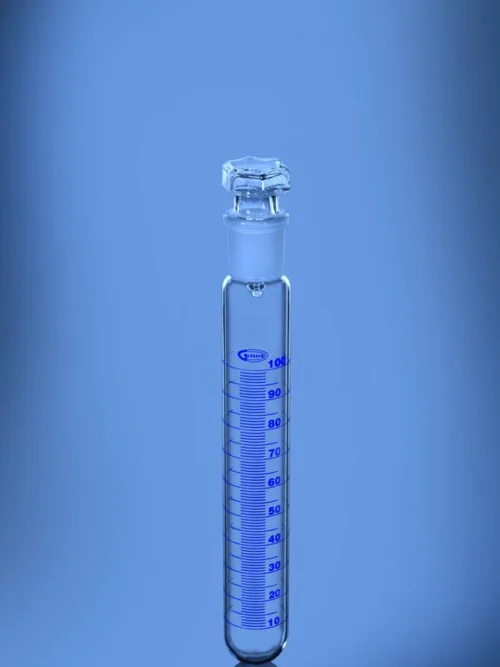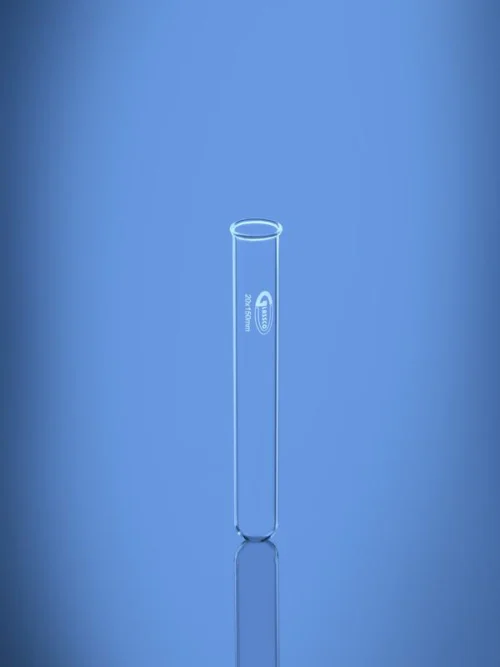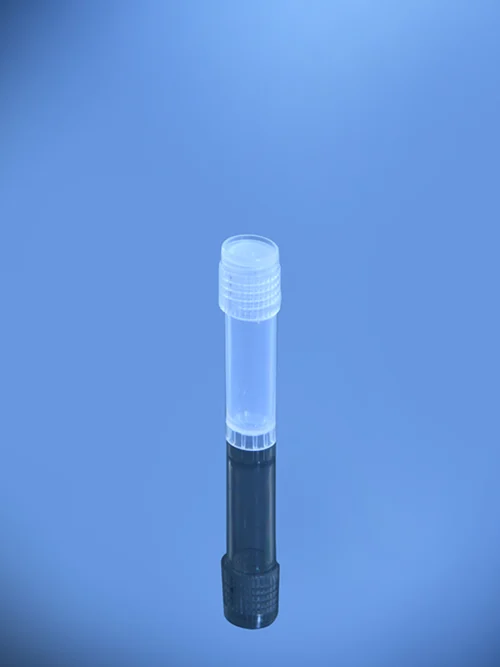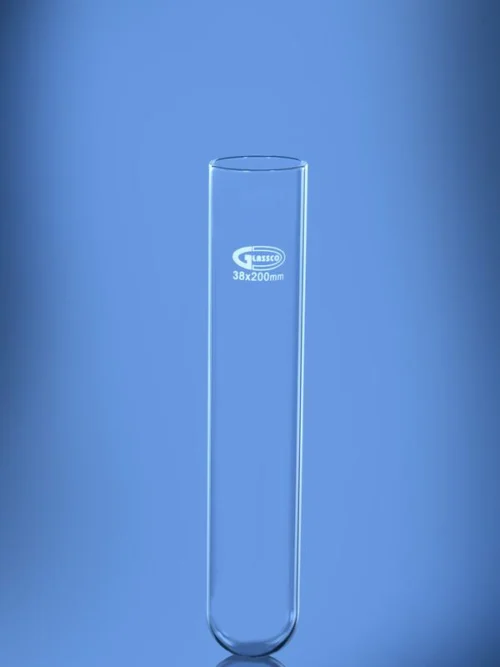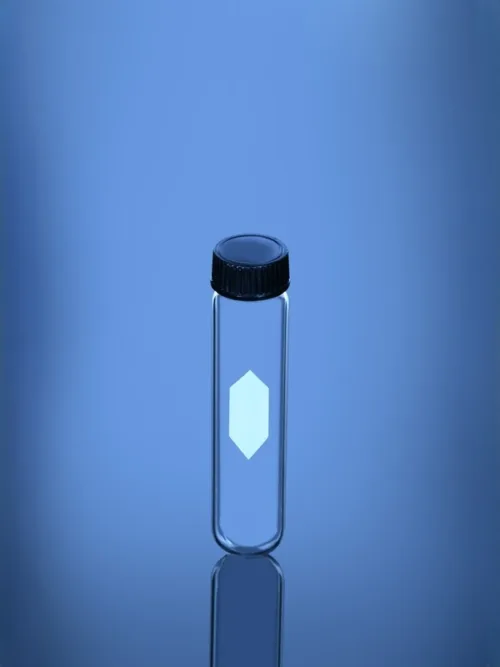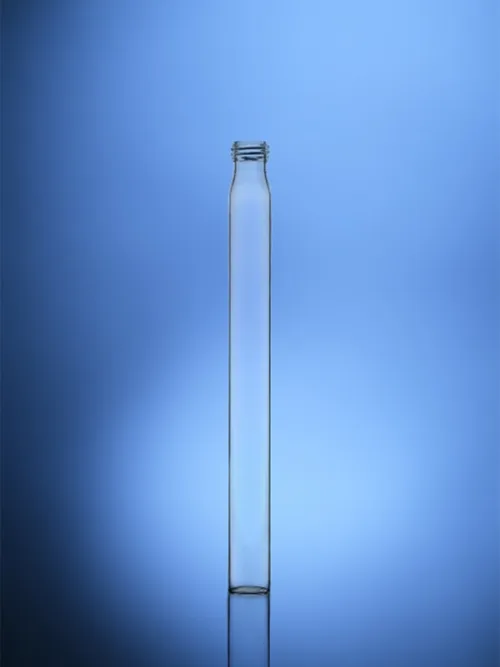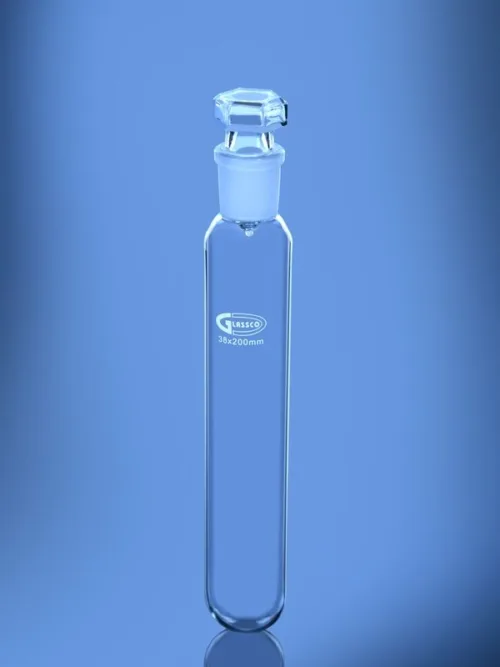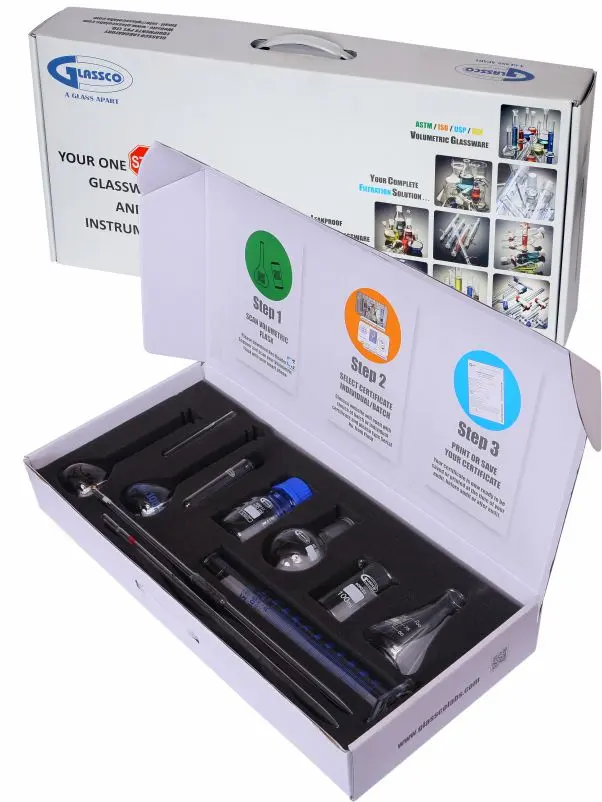Test Tubes
A test tube is a cylindrical glass or plastic container used in laboratories for holding, mixing, and heating small liquid samples. It has a U-shaped bottom and an open top. British physicist and chemist Michael Faraday (1791–1867) developed the test tube. Test tubes are also called culture tubes or sample tubes. They are essential in chemical reactions, biological experiments, and medical testing. They can be reusable or disposable, depending on the material. In clinical labs, they hold blood and urine samples. In microbiology, culture tubes store bacterial and cell cultures. They are also used in educational science experiments.
Features
- Easy and safe to use
- Heat resistant
- Chemical resistant
- Uniform dimensions
- Ideal for clinical and industrial use
- Environmentally friendly
Types of Test Tubes
Borosilicate test tubes are classified into reusable and disposable types. Reusable test tubes are made from Borosilicate Glass 3.3 and include glass tubes and culture tubes. Disposable test tubes are made from Boro 5.1 or Boro 7.0 glass and are discarded after use.
Reusable Test Tubes
– can be sterilized and reused.- Glass Tubes – used for heating, boiling, and experiments.
- Culture Tubes – used for storing cell cultures
- Reusable test tubes are sturdy, heat-resistant, and ideal for high-precision chemical reactions.
Disposable Test Tubes
- Boro 5.1 Test Tubes – include glass tubes and culture tubes
- Boro 7.0 Test Tubes – general-purpose glass tubes.
- These tubes are cost-effective and prevent cross-contamination.
Test tube sizes
Test tubes come in various sizes, typically ranging from 10 mm to 25 mm in diameter and 50 mm to 200 mm in length. Standard sizes include 13x100 mm, 16x100 mm, and 18x150 mm. Smaller tubes are used for medical and biochemical tests, while larger ones are for heating and mixing in laboratories. We make anything between (6x50mm) 0.75ml to (38 x 200mm) 150ml test tubes.
Commonly used at
- Blood Banks
- Bacteriology Labs
- All General Laboratory Applications
- Clinical Chemistry procedures
Glassco’s Test Tubes
- Fully Autoclavable
- Super Fine Quality
- Leakproof
- Non-Reactive
- Chemically safe
- High Thermal Resistance
